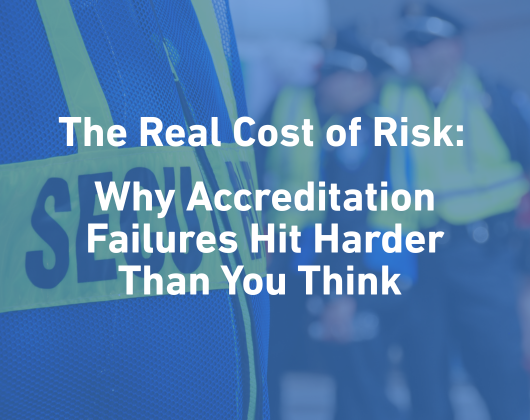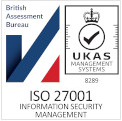In recent weeks the topic of a vaccine passport as a way out of lockdowns has been gaining coverage in the Australian press. As a means to open up the country again and get out of lockdowns, a vaccine passport could come into force once vaccinations reach a minimum of 70% of the population, as set out in the National Plan to Transition Australia’s National COVID-19 Response. How it’s going to come into force is another question, as this is being left up to the individual States to manage.
New South Wales for instance is targeting the 70% mark to allowing fully vaccinated people to meet up in increased numbers. Most specifically for our sector is the fact major stadiums can have up to 5,000 people in attendance, 500 people will be able to attend outdoor seated events and indoor venues will be able to cater to 75% of their seated capacity.
Victoria, however, is taking a much more cautious approach. While some relaxation will happen at the 70% mark, it is only when 80% is achieved that most of the easing will come into focus. With a target date of 5 November, it could be some of the major upcoming events like the Boxing Day Test against England could be covered by it.
What would a vaccine passport mean?
At a casual glance instigating a passport initiative looks like the right thing to do, it would help open up the economy, allow people to socialise and meet up again and generally regain a sense of normality (social and economic). Like everything, there are arguments against the introduction of a passport:
- How do you handle people who are unable to be vaccinated due to health or religious beliefs?
- Are you removing the choice for a set of the population?
- By mandating for a passport you are taking away the freedom of choice?
- It may seem like big brother is watching.
The arguments of freedom of choice and big brother are perhaps the most problematic, as France has experienced. Demonstrations across the country protested against the introduction of a passport on these very grounds, but as time goes on it does look like the movement is waning with less opposition to it now.
Back to the hospitality and events industry and where we are at. There has been increasing the pressure on getting a COVID-19 passport since July as the financial impact continues to weaken these sectors. Some high-profile companies, like Qantas, Crown Resorts and Virgin Australia, have taken matters into their own hands to protect their businesses by only allowing vaccinated customers to use their services. This they hope will mitigate the need to shut premises or operations due to a positive COVID-19 case.
To operate a business for vaccinated customers only, you need to know who is safe and who isn’t, a “passport” is central to this effort. We at Accredit recognise this as a possible route for re-opening and being able to stay open and that is why Accredit-GO was launched. Accredit-GO helps sporting, live events and stadiums to minimise the risk of contamination through the collection, storage and use of health-specific data verifying who is safe to work and who isn’t.
Built as an extension of Accredit’s award-winning accreditation platform, Accredit-GO provides the ability for users to submit medical information and vaccination certificates as part of the accreditation process. Dynamic rules automate the analysis of this data, before assigning entry permissions and entry passes which can link into access control as well as offering track and trace capabilities.
Whether it be a negative test result, immunity certificate or proof of vaccination, this information can all be clearly presented on someone’s accreditation badge or e-badge via an icon, stamp or code.
Accredit-GO has been rolled out by the National Basketball League and Cricket Australia, among others, to help ensure the continuation of their leagues and sports. In the case of Cricket Australia, they needed to find a way to make sure an expected 10,000 media, staff and contractors spread across 161 matches in 9 different cities for their 2020 season. They achieved this as Accredit-Go allowed them to:
- Educate their staff through video tutorials covering new COVID-19 procedures to enable safe working during the pandemic.
- Enhanced data collection of the appropriate medical and health information Control who gained access and when they were allowed onsite based on their job function and collection of daily information
Ultimately Accredit-GO gave Cricket Australia the information they needed to ensure every person onsite was safe from a health perspective. This in turn gave them the confidence to proceed with their season. You can read more on how we helped Cricket Australia in our other blog here, or watch ESSMA’s webinar with Cricket Australia here.
Getting a system working nationally
Helping to get a sports season up and running is one thing. To get an entire country out of lockdown is another altogether. We’ve demonstrated how collecting health information can be done ethically and responsibly. We will now be turning our attention to what will happen on a State level within Australia ensuring we are there for our clients to help them through the next stage of COVID-19. We continue to believe a correctly deployed passport, if used as part of a wider toolkit, can help get us all out of lockdowns, open up the economy, safeguard the running of our sports and events and ultimately bring back a sense of normality.
For more information on the Accredit Platform, Accredit-GO and how we can help you ensure a safe environment for your staff and contractors please contact us.





![EAS-Accredit-300dpi[22]](https://www.accredit-solutions.com/wp-content/uploads/2024/01/EAS-Accredit-300dpi22-300x156.png)

